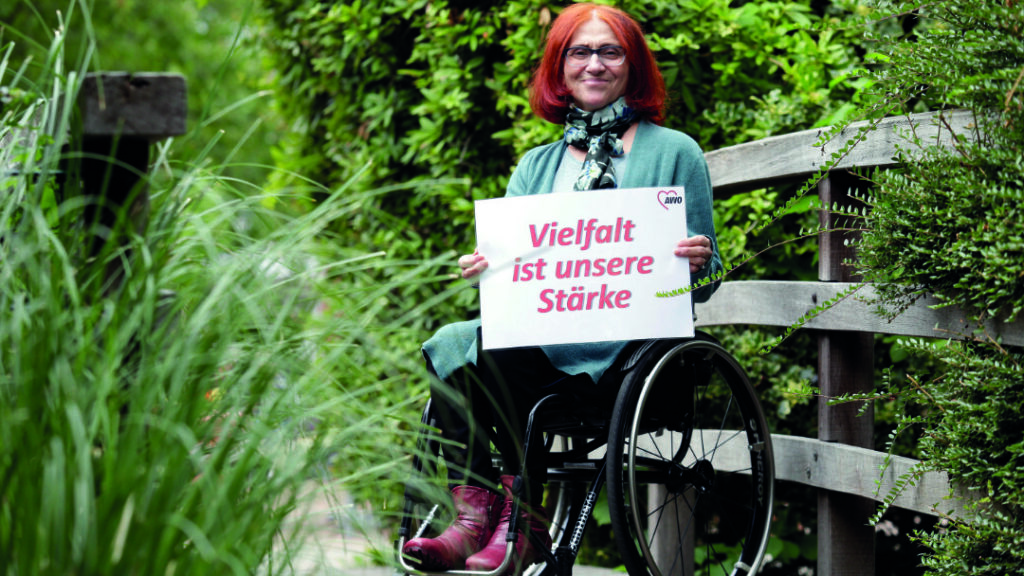Bedia Torun - "Accessibility starts in the mind!"

Bedia Torun
„When my little godson paints a picture of his surroundings, the house has a ramp for wheelchairs,“ says Bedia Torun with a smile. The 63-year-old has been working at Arbeiterwohlfahrt (AWO) for many decades and is primarily involved in the area of refugees and migration. She talks about how quickly and easily young children accept their circumstances and think along with them. „I would often like to see this change in perspective from politicians and society“.
The young woman came to Germany in 1986. Her interest in socio-political issues never faded. She was particularly involved in the women’s movement of the 1980s and fought for the rights of women with a history of migration and escape.
„I came to the AWO through a friend, and that’s how my story in Germany began. My understanding of democracy and diversity was strengthened and encouraged here,“ says Bedia. The AWO has always supported her, even after her sudden paraplegia. „My entire life was turned upside down, everything was different. In addition to my family, my colleagues in particular were an anchor for me. I also found role models here who gave me strength.“
For more than three decades, Bedia Torun has been an important driving force behind the AWO’s intercultural work, initiating numerous award-winning projects and bringing them to life. Today, she says, she herself wants to be a role model for young people and show that there are many ways to lead a life worth living.
Bedia was not always dependent on a wheelchair; in fact, until the age of 38, she hardly had any contact with the topic of disability. „I was never ill before, not even a headache, on the contrary. My life was characterized by a fast pace and activities, both socially, professionally and politically.“ Then that changed. She had strange complaints, her leg often fell asleep. „After many visits to the doctor, I was finally advised to have a routine operation,“ says Bedia, adding: „I was taken to hospital on Monday, and on Wednesday I was suddenly paraplegic.“
Although a lot has changed for Bedia as a wheelchair user, a lot has remained the same. For example, her interest in social, political and academic issues. She also explored new, exciting topics professionally and campaigned for accessibility, among other things. „Accessibility is not just about architecture. Often barriers in the mind that are harder to change,“ she says. „My disability is there. I do not want to pretend otherwise, sometimes I am fine with it and some days I am not. And sometimes I feel that my existence alone is a political statement. As a woman. As an immigrant woman. As an immigrant, disabled woman.“
As a woman with a refugee background, she has already experienced a lot of discrimination and having decisions made for her in her life. This is even more noticeable to her in a wheelchair. „I am disabled. But I am also loud and active, sensitive and empathetic, angry and cheerful and sometimes all of these things at once. Not because of my disability, but completely independently of it and sometimes even because of it,“ she says emphatically.
„Sometimes I feel that my existence alone is a political statement.“
